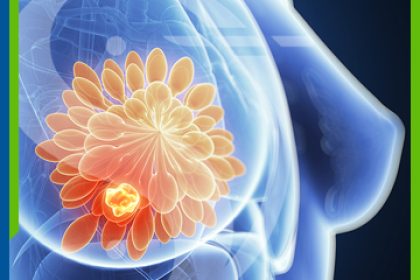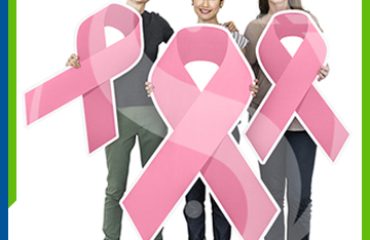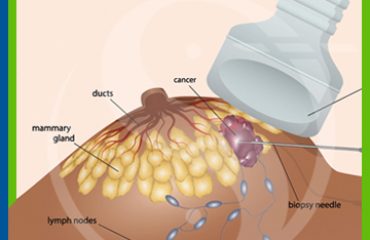
The exact cause of breast cancer is yet unknown. However, it is found to be associated with certain factors. Some of those risk factors can be controlled by the patient, while some are beyond control.
Known causes
- Long and excessive exposure to estrogen hormone such as menstruation periods starting at early ages, ending at late ages (late menopause), as well as estrogen hormone replacement
- Breast cancer, ovarian and/or uterine cancer history in the family (sister, mother, aunt, cousin, grandmother, etc.),
- Smoking, alcohol,
- Obesity, fat-rich diets,
- Lack of exercise (45 mins of jogging for minimum of 3 times a week),
- Excessive stress,
- External factors (food and air contamination).
Uncontrollable Risk Factors:
- Age
Breast cancer risk increases by age and hardly develops under age of 20. Majority of the patients are over the age of 50. However, a remarkable escalation in breast cancer of young age is seen today.
- Gender
99% of all breast cancers occur in women, with 1% male patients. It is not a type of cancer specific to women only.
- Family history
The risk increases by two folds if there is breast cancer history in close family members (mother, sister, aunt, etc.). It is found that 5-10% of breast cancers come from genetic origin. BRCA1 and BRCA2 are genes which are associated with breast and ovarian cancers. The risk of developing breast cancer by the age of 70 is approximately 55%, if a person is carrying either of these genes.
- Cancer in the opposite breast
A person who had cancer in one breast has a higher risk of developing cancer in the opposite breast compared to other women. Risk for contralateral breast cancer development lifelong is approximately 25-30%.
- Early menstrual period and late menopause
Women who had their first menstrual period under age of 12 and had menopause after the age of 50 face higher risk of breast cancer.
- Birth history
Women who never delivered a baby are in the risk group for breast cancer. Women who gave birth over age of 30 have 4-5 times higher risk of breast cancer compared to those who gave their first birth at the age of 20.
- Race
Women who belong to white race have higher breast cancer risk than black women.
Controllable Risk Factors:
- Alcohol, smoking
The risk increases with two or more glasses of alcohol consumption on daily basis. Also smoking increases the risk.
- Fat-rich diet and obesity
It is found out that a diet particularly rich in animal fat increases breast cancer risk.
- Radiation
Exposure to radiation under age of 30 increases the risk.
- Use of birth control pills
Use of birth control pills (oral contraceptives) particularly beyond the age of 35 and for extended periods increase breast cancer risk. Women who have a breast cancer history in close family members should not use birth control pills unless it ismandatory.
- Post-menopausal hormonal replacement
The risk increases when hormonal replacement is administered for 10 or more years. However, it is found out that, up to 5 years of use make no significant increase of risk. Hormonal replacement is not recommended for women having considerable amount of breast lumps.
- Exercise
Breast cancer is found less among women exercising regularly than those who do not exercise at all. There are significant amount of scientific studies that show decreased breast cancer risk among women who particularly perform athletic exercises. It is believed to be resulting from decrease in stress levels of an individual during exercise due to enzymes and hormones release.




